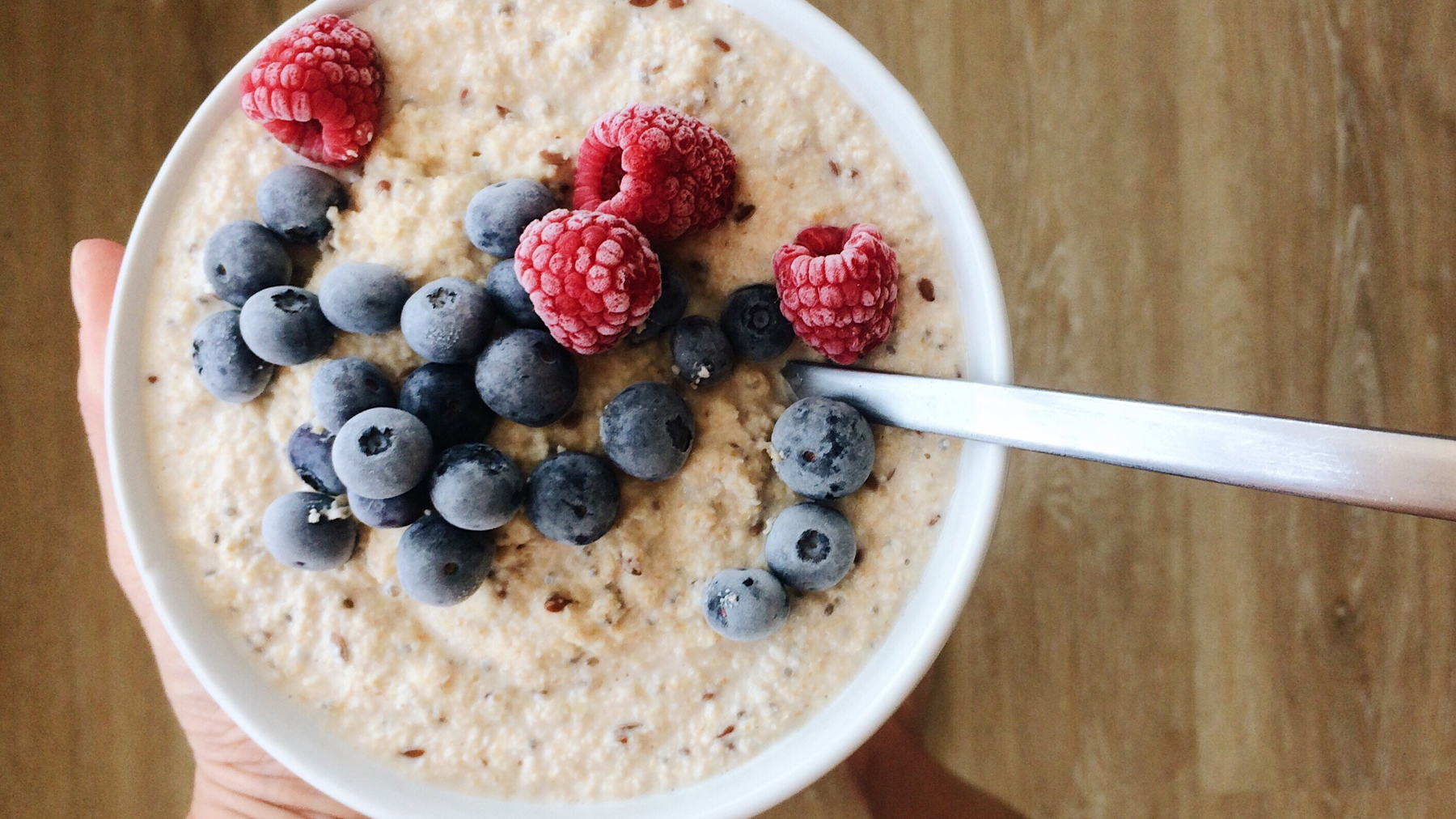
You may be wondering how to cut down sugar and what the benefits of doing so might be. Sugar is often demonized by health and wellness gurus, but is it really all that bad for us? We’ve spoken to the experts to get their view on sugar and how best to reduce your sugar intake.
It is important to know how much sugar is in the foods you’re eating in order to make informed dietary choices. We’ve broken down how you can identify the sugar content of your food and how to read product labels, which are often confusing.
Increasing your protein intake is a great way to curb your appetite, as protein has been shown to increase feelings of satiety and fullness. Our guide to the best protein powders for weight loss lists the top protein powders which are low in sugar but high in protein and other nutrients to support your efforts to cut down sugar.

Jess Hillard is a nutritionist with a degree in Nutrition BSc from Oxford Brookes University. Her passions are in sports nutrition, having competed in Tetrathlon for Southern England and now taking up Triathlon, which she is currently training for this season. Her initial interest in Nutrition sparked from an injury caused by over-training. Education into using food to aid recovery helped her overcome the injury and realize how important it is to fuel sufficiently as an athlete. Since becoming a nutritionist, Jess has the ability to help others with the same issues and compete at their best in their chosen sport.

Dr Richard is based in Harley Street, London and has an enviable client list including Olympian Tom Daly, Rylan Clark, Anne-Marie and Rita Ora, to name a few. In-between clients Dr Richard can be found on the ‘The Dr Richard Podcast’, exploring how physical and mental health go hand in hand, with a variety of interesting guests. Dr Richard Marques BDS, graduated with distinction from Guy’s, Kings and St Thomas institute of dentistry. Since then he has attended numerous courses and treated many highly-complex dental cases successfully. In 2006 he completed the Bicon implant course in South Africa. He has placed and restored many implants with great results. He has special interests in complex restorative, aesthetic and implant dentistry. He also treats gum problems and periodontal disease. Training with a plastic surgeon has allowed him to offer wrinkle reduction treatments including anti-wrinkle injections and dermal fillers. He believes in conservative administration in order to achieve a natural, youthful and refreshed appearance.
Why too much sugar is bad for you
A review in the British Journal of Sports Medicine found that sugar produced several symptoms that are associated with addiction. Interestingly, the review concludes that there is a significant overlap between addictive drugs and sugar, “from the standpoint of brain neurochemistry as well as behavior.”
Harley Street Dentist Dr Richard Marques explains why too much sugar can be detrimental for oral health. “From a young age we’ve all been told that too many sweets will make your teeth rot. In reality it’s actually the aftermath of eating sugary treats that is the concern,” he told Fit&Well. “After eating sugar, the natural bacteria in your mouth mixes with the sugar and creates acid. These acids are extremely harmful for your teeth and the enamel.”
While this may be alarming, it is worth remembering that sugar comes in many forms, and while refined sugar may elicit these concerning responses in humans and animals alike, eating a banana is very different from eating a sugar cube.
We’ve spoken to leading sports nutritionist for Warrior, Jess Hillard, who explains why an excess of sugar in the diet can have a negative impact on our health. “Sugar has detrimental impacts on the body from causing tooth decay, to increasing the risk of type 2 diabetes and heart disease,” she says. “It can also lead to an increase in weight gain, has seen to increase the risk of cancer and can have a large effect on skin health, linking to acne.”
Start your week with achievable workout ideas, health tips and wellbeing advice in your inbox.
While this sounds like a lot, it is worth noting that sugar can play a part in a healthy balanced diet when eaten in moderation. While cutting down on refined sugar may negate the risk of tooth decay and your chances of developing type 2 diabetes, you don’t need to worry about the sugar content of otherwise nutritionally dense foods, such as fruit.

The benefits of cutting down on sugar
Hillard told Fit&Well the top benefits of cutting down on dietary sugar. “Cutting down on sugar will allow the body to have more regular blood sugar levels, seeing more sustained energy throughout the day rather than spiking and then suddenly dropping,” she explains. “You may also see your skin looking clearer and having a natural glow. Adding to this, if you alter your diet you could see some weight loss too.”
A 2019 meta analysis in the journal of Neuroscience and Behavioral Reviews which looked into the effects of sugar on alertness found that those who consumed the sugar reported higher levels of fatigue and less alertness compared with those who took a placebo. While simple sugar only takes us 30-60 minutes to process, this means that once our bodies have processed it, we experience fatigue and loss of focus, instead of a consistent level of energy. Additionally, simple sugars don’t contain other nutrients, making them a nutritionally poor choice as they are high in calories but low in anything else of use to our bodies.
Dr Marques explains how cutting down on sugar can benefit oral health. “It’s simple: less sugar equals less cavities. Sugar is directly linked to tooth decay. By limiting your intake of sugar you lessen the chances of tooth decay and, in turn, reduce the risk of tooth loss,” he says.
How to cut down on sugar
Hillard’s top tips for cutting down on sugar include looking at your diet and assessing where you could make some low-sugar swaps. “For example, if you are having cereals for breakfast, look at the sugar content and see what cereals you could switch to in order to lower this,” she says. “This could be from Honey Puffs, to making the swap to Bran Flakes with some chopped banana, raisins and a small handful of nuts. Or, if your sugar intake is coming more from snacks, make the swap to some chopped carrots and hummus as a snack instead! Simple and easy swaps, they don’t have to be huge and can still be tasty!”
Dr Marques encourages us to start cutting down sugar at breakfast. “Swap out sugary breakfasts for wholewheat cereals or porridge,” he says. “Try water flavored with lemon or mint rather than reaching for fizzy drinks to quench your thirst. How about choosing low-sugar fruits for dessert [strawberries, raspberries, kiwis] over that chocolate fudge cake.”

How can you tell how much sugar is in a product
The easiest way to work out how much sugar a product contains is to read the label. Packaged foods have to give a nutritional breakdown by law, laying out serving size, calories per serving size and breakdowns per nutrient, with total carbohydrates listed with dietary fiber and sugars. These are generally listed as a percentage of the recommended daily amount based on an average 2000 kcal diet.
Hillard tells us that the traffic-light-system some labels contain can be particularly useful for assessing the sugar content of a product at a glance. “You want to ensure you are consuming products which do not have a red label in the sugar column. For adults, we should not be consuming more than 30g of free sugars per day (that is about 7 sugar cubes). For children this is slightly lower at: 19g (4-6 years), 24g (7-10 years).”
While a cucumber or a pear might not come with a label, many calorie counters like myfitnesspal will give you an average nutritional breakdown of these foods and will help you track other nutrient intakes, as well as overall calories.
If you’re looking at ways to carve out a diet with less sugar then read up on the 80/20 rule diet for some inspiration. Or find out the answer to why does your weight fluctuate so much?

Lou Mudge is a Health Writer at Future Plc, working across Fit&Well and Coach. She previously worked for Live Science, and regularly writes for Space.com and Pet's Radar. Based in Bath, UK, she has a passion for food, nutrition and health and is eager to demystify diet culture in order to make health and fitness accessible to everybody.
Multiple diagnoses in her early twenties sparked an interest in the gut-brain axis and the impact that diet and exercise can have on both physical and mental health. She was put on the FODMAP elimination diet during this time and learned to adapt recipes to fit these parameters, while retaining core flavors and textures, and now enjoys cooking for gut health.
